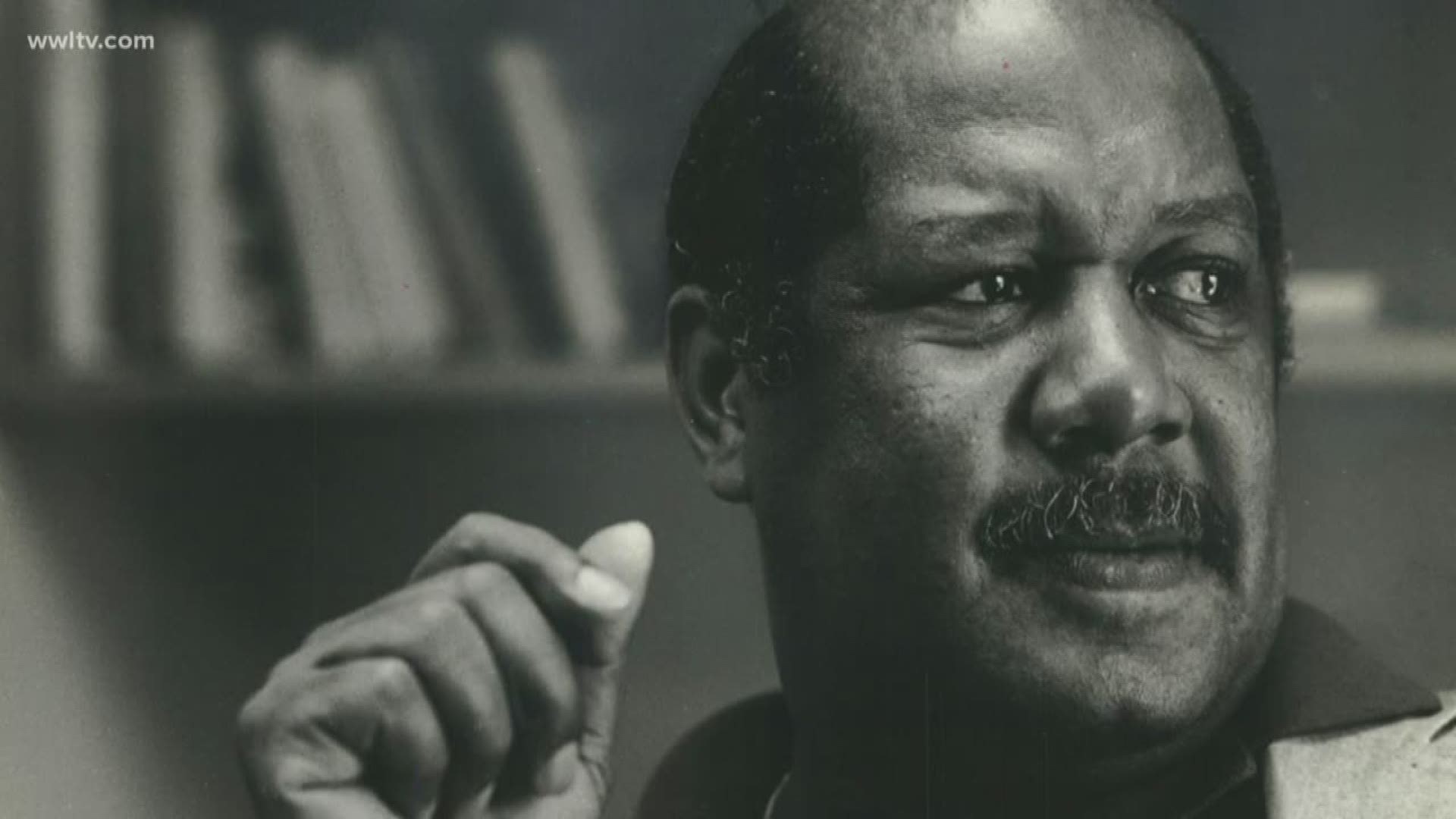NEW ORLEANS — Ernest Gaines, the acclaimed author of 'A Lesson Before Dying' and 'The Autobiography of Miss Jane Pittman,' who was born on a plantation in Pointe Coupee and rose to the heights of the literary world, died Tuesday, his family said. He was 86.
Gaines, whose 1993 novel A Lesson Before Dying was nominated for the Pulitzer Prize and was part of Oprah’s Book Club in 1997, was an acclaimed novelist, short story writer and teacher. Four of his works, which chronicled the African-American experience in the rural South, were made into television movies. The 1974 CBS production of 'The Autobiography of Miss Jane Pittman,' starring Cicely Tyson, earned nine Emmy awards.
Gaines' books and short stories have been taught in college classrooms and translated into many languages. Beginning in the 1980s, Gaines taught at the University of Louisiana at Lafayette as a writer-in-residence. The Ernest J. Gaines Center at the university is an international center for scholarship on Gaines and his work.
"The legacy that Dr. Gaines is leaving behind is nothing short of brilliant and awe-inspiring," the university said in a statement. "Though he touched countless people through his work, to know him was to love him. A towering man with a gentle voice, Dr. Gaines was an inspiration to generations and his death will be felt deeply by family, friends, and his University family."
Before he retired from teaching in 2004, Gaines won numerous awards including the National Humanities Medal, Louisiana Humanist of the Year and a MacArthur Foundation Fellowship. He was also made a Chevalier (Knight) of the French Order of Arts and Letters and received dozens of honorary degrees and honors.
"It is with a heavy heart that we say goodbye to Ernest J. Gaines, a native Louisianan who used his immense vision and literary talents to tell the stories of African Americans in the South," tweeted Gov. John Bel Edwards.
The son of sharecroppers and the eldest of 12 children, Gaines was born on a plantation near New Roads in 1933 that he later bought and continued to live on. Though he was born generations after the end of slavery, he and his family grew up impoverished and living in old slave quarters on the plantation, which formed the basis for many of his works.
“I was born here, stayed here, lived here until I was 15. It was because I could not go to a high school around here, in New Roads or Pointe Coupee," Gaines said in a WBRZ-TV story in February.
He moved to California at age 15 because his Louisiana parish didn't have high schools for African-Americans during the Jim Crow-era.
His first novel was written at age 17. According to one account, he wrapped it in brown paper, tied it with string, and sent it to a New York publisher, who rejected it. Gaines burned the manuscript, but later rewrote it to become his first published novel, 'Catherine Carmier.'
According to The Advocate, after finishing high school, Gaines served in the Army and attended San Francisco State University before enrolling in Stanford University's creative writing graduate program.
Although he set his stories in Louisiana, Gaines wrote them in San Francisco. In a citation for his National Humanities Medal he is quoted as saying, "I needed that distance in order to write." During his time in California he frequently traveled back to Louisiana to reconnect to the land and the people here. "I had to be part of them to write about them in a small cold room in San Francisco."
"Drawing on the images, cadences, and sentiments of his youth, Ernest J. Gaines writes novels that evoke the particulars and the feel of small-town southern Louisiana in the early part of the twentieth century," the National Endowment for the Humanities wrote when presenting him the medal.
"He is renowned for his tales about Bayonne, Louisiana, based on Pointe Coupee Parish, where he spent his childhood and early adolescence. 'The humanities are all about criticizing man, but at the same time you say what is good in him. It's like a mirror,' says Gaines. 'The artist tries to show the truth. It's not always a beautiful picture. The humanities are about saying, what can we do to improve it?'"
► Get breaking news from your neighborhood delivered directly to you by downloading the new FREE WWL-TV News app now in the IOS App Store or Google Play.

